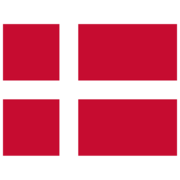Fiscal subject related
When it comes to B2G public procurement, the Danish government requires that e-invoices be exchanged via the NemHandel platform following the OIOUBL standard that is provided and maintained by the Danish Business Authority. Since April 2019, all public organizations have been required to handle electronic invoices following the European standard (EN-16931) due to the implementation of Directive 2014/55/EU.
The Danish Bookkeeping Act was implemented in May 2022. mandates that all companies use Digital Bookkeeping Systems (DBS) that can create and process electronic invoices. Regarding turnover, all B2G business categories have a final deadline 1. of January 2026 for compliance.
The NemHandel platform facilitates the safe transmission of invoices by acting as the national e-invoicing infrastructure. Economic operators are required to furnish the appropriate identity numbers and register in the NemHandel Registry (NHR). By giving IT suppliers rules and validation tools to guarantee adherence to e-invoicing standards, the Danish Business Authority promotes compliance.
Other news from Denmark
New document was uploaded: EV-chargers from the Fiscalization Perspective in Denmark
 Denmark
Author: Ivana Picajkić
Denmark
Author: Ivana Picajkić
The purpose of this document is to explain rules regarding the treatment of EV chargers for electric vehicles in Denmark in relation to fiscalization. The document will explain whether they are subjects of fiscalization or not, whether there are some special rules and regulations, or if there are some special rules. Read more
Subscribe to get access to the latest news, documents, webinars and educations.
Already subscriber? Login


Denmark Proposes Major Tax Reform: Chocolate and Coffee Taxes to Be Abolished
 Denmark
Author: Ivana Picajkić
Denmark
Author: Ivana Picajkić
Denmark has proposed a broad tax reform under the 2026 Finance Act that would abolish the chocolate, confectionery, and coffee taxes, introduce zero VAT on books, and simplify the tax system to reduce everyday costs and support social and economic priorities. Read more
Subscribe to get access to the latest news, documents, webinars and educations.
Already subscriber? Login


Denmark’s Economic Council Rejects Lower VAT on Groceries
 Denmark
Author: Ivana Picajkić
Denmark
Author: Ivana Picajkić
Denmark’s Economic Council advises against lowering VAT on food, citing high costs, management difficulties, and minimal benefits for needy households. They recommend direct financial support for low-income families and subsidies for healthy food instead, emphasizing the simplicity of Denmark’s current single VAT rate of 25%. Denmark’s top economic advisers have warned against lowering VAT o... Read more



Denmark Introduced New Coins Featuring the Current Monarch
 Denmark
Author: Ivana Picajkić
Denmark
Author: Ivana Picajkić
Denmark introduced redesigned coins on December 2, 2025, featuring King Frederik X through updated portraits and monograms, along with a new symbol inspired by the octagonal layout of Amalienborg Palace Square. The new designs apply to the 20-, 10-, 5-, 2-, and 1-krone coins, while all existing coins remain legal tender and continue to circulate. Danmarks Nationalbank introduced new Danish coins i... Read more



What’s Changing in Denmark: New E-Invoicing, SAF-T 2.0, and ViDA Requirements
 Denmark
Author: Ivana Picajkić
Denmark
Author: Ivana Picajkić
Denmark, like many EU countries, is gearing up for major regulatory changes such as VAT in the Digital Age (ViDA). The country is moving toward a more automated digital economy by updating its e-invoicing standards, strengthening digital bookkeeping rules, and aligning national systems with future EU requirements . Modernising e-Invoicing standards Denmark is updating its national docume... Read more



Denmark Announces New Nemhandelsregister Update
 Denmark
Author: Ivana Picajkić
Denmark
Author: Ivana Picajkić
Denmark has announced a new Nemhandelsregister (NHR) update—covering NHR Core, API, SMP, and PoRS—bringing stability, security enhancements, and a key fix ensuring the validator now correctly handles overlapping profiles. The release, deployed to demo on 19 November and expected in production on 26 November 2025, may cause brief disruptions but requires no actions from market participants. The Dan... Read more



Denmark Releases Updated OIOUBL Schematron
 Denmark
Author: Ivana Picajkić
Denmark
Author: Ivana Picajkić
The Danish Business Authority released OIOUBL 2.1 schematron version 1.16.0, enhancing e-invoice data quality with CO2 data checks and stricter currency code controls. Implementation is required by November 27, 2025. The Danish Business Authority has released version 1.16.0 of the OIOUBL 2.1 schematron as a final version. The update is minor and focuses on improving data quality in e-invoices. Th... Read more


